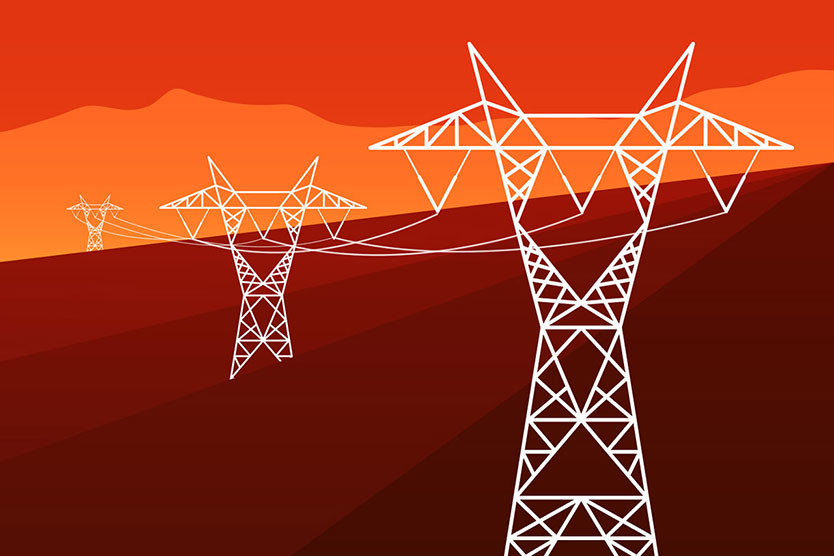
The Fraunhofer IEE has demonstrated the novel converters in action at its laboratories in Kassel.
© BMWi
The grid control systems used for energy transition must be at least as stable as the systems used in conventional fossil power plants. The multi-partner project Grid Control 2.0, funded by the Ministry for Economic Affairs and Climate Action (BMWK), has been able to demonstrate how grid-forming power converters – across the gigawatt, megawatt and kilowatt range – can provide instantaneous reserve, replacing the function of rotating flywheel masses in the grid.
Four years after the project was started, the Fraunhofer Institute for Energy Economics and System Technology (IEE) has presented the results to stakeholders and demonstrated the novel converters in action at its laboratories in Kassel. New control procedures and their equalizing effects were simulated using extreme scenarios, such as a grid separation across Europe with major voltage drop-outs.
"We are convinced that the interconnected grid - and in the event of a fault, sub-grids as well - can be kept stable even with very high power converter shares. However, this requires suitable control procedures,” explains project manager Doctor Philipp Strauß, deputy director at IEE, in a press release. “We have determined the requirements for these procedures and developed control protocols to ensure that the power converters can serve a safe and stable system operation.”
The new procedures were found to work with battery systems, wind turbines, photovoltaics, rotating phase shifters, statcoms and electrical loads, but the spatial distribution of grid-forming plants turned out to be a critical factor. Methodology for islanding detection was also developed and test routines for electrical inertia, grid-forming and damping. In addition, simulations were run to see how the converters interacted with existing synchronous generators in phased combinations.
"The results come at exactly the right time for the Roadmap System Stability," commented, Alexander Folz, regional director in the System Security Division of the BMWK.


